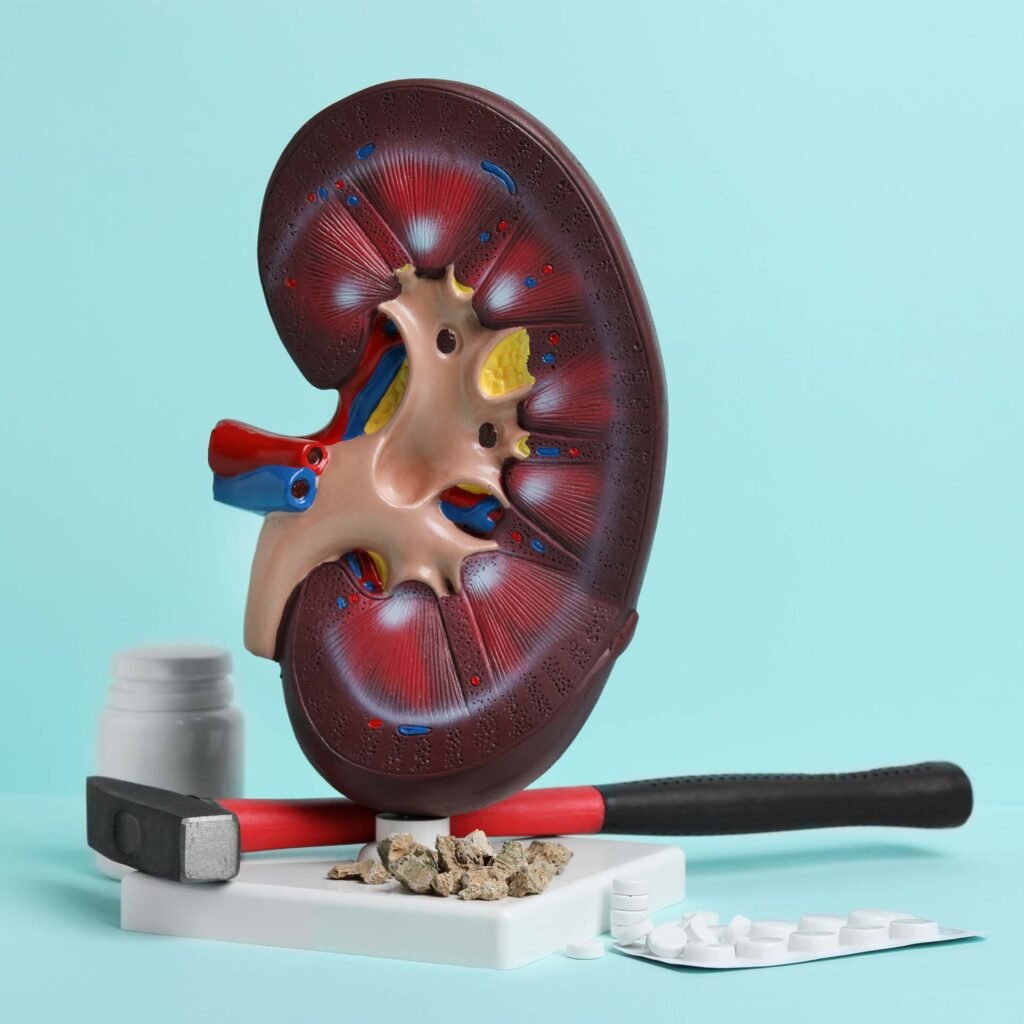Kidney Disorders

Kidney disorders refer to a wide range of conditions that affect the function of the kidneys, which are responsible for filtering waste products and excess fluids from the blood to form urine. When the kidneys are damaged, waste and fluids can build up, leading to various health problems.
Common Types of Kidney Disorders:
- Chronic Kidney Disease (CKD):
- A long-term condition where the kidneys gradually lose function over time.
- Leading causes include diabetes and high blood pressure.
- Symptoms: Fatigue, swollen ankles, nausea, shortness of breath, and frequent urination, especially at night.
- Acute Kidney Injury (AKI):
- Sudden loss of kidney function due to injury, severe infection, dehydration, or medications.
- Often reversible with prompt treatment.
- Kidney Stones:
- Hard deposits made of minerals and salts that form in the kidneys.
- Symptoms: Severe pain in the back or side, nausea, vomiting, and blood in urine.
- Glomerulonephritis:
- Inflammation of the kidney’s filtering units (glomeruli).
- Can result from infections, immune system disorders, or chronic diseases like lupus.
- Symptoms: Blood in urine, high blood pressure, and swelling in the face, hands, or feet.
- Polycystic Kidney Disease (PKD):
- A genetic disorder where fluid-filled cysts grow in the kidneys, causing them to enlarge and lose function over time.
- Symptoms: High blood pressure, back or side pain, and blood in urine.
- Urinary Tract Infections (UTIs) and Pyelonephritis:
- Bacterial infections of the urinary tract that can spread to the kidneys.
- Symptoms: Fever, back pain, frequent and painful urination, and cloudy urine.
Key Risk Factors:
- Diabetes
- High blood pressure
- Heart disease
- Obesity
- Smoking
- Family history of kidney disease
- Advanced age
Symptoms of Kidney Disorders:
- Fatigue
- Swelling in legs, ankles, or feet
- Shortness of breath
- Changes in urination (e.g., frequent urination, difficulty urinating, or foamy urine)
- Blood in urine
- Loss of appetite
- Itching and dry skin
Prevention and Management:
- Control blood pressure and blood sugar levels if you have diabetes.
- Eat a kidney-friendly diet, low in sodium, protein, and potassium.
- Stay hydrated but avoid excessive fluid intake if kidneys are failing.
- Avoid smoking and limit alcohol consumption.
- Exercise regularly and maintain a healthy weight.
- Medications may be prescribed to manage conditions like high blood pressure and high cholesterol.
- In advanced cases, treatment may include dialysis or kidney transplantation.
Regular check-ups and early detection through blood and urine tests can help manage or prevent the progression of kidney disease.